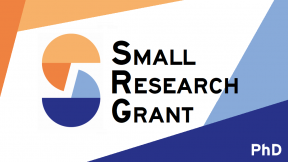In colonial Africa, forced labour was widely practiced and has been shown to hinder economic development in the long run. This study looks at a particular form of forced labour previously understudied: the use of indigenous military reservists for public works by the colonial administration in French Soudan (contemporary Mali) from 1927 to 1947. Traditional chiefs at the time played a pivotal role in ensuring that eligible local young males among the reservists were sent into public works, consisting of constructing railways, excavating canals, and building dams, at locations which oftentimes required extensive population movements. The author intends to investigate whether the experience of military forced labour affected long-term local development in Mali through its impact on migration and dynamics between local population and their traditional leaders.
To investigate these questions, the author digitizes a unique set of military archival data combining the enrolment history of local young males in French Soudan as conscripts or reservists with various socio-demographic characteristics, including village of birth and residence, profession, ethnic/religious affiliations, and height, etc. These archival data will allows in the documentation of the colonial social structure as well as internal migration movements at the village level, during a period for which no survey or census data is available. Such data can further the understanding of how forced labour contributed to reinforcing or alleviating colonial-time inequalities, and whether it determined population mobility. Furthermore, exploiting a feature of the military conscription system that allocated enlisted males to either forced labour or active military service through lotteries, the dataset allows the author to identify the causal impact of forced labour on local institutions, public services provision, and long-term development outcomes at a very disaggregated level.
Uncovering the legacies of military forced labour in French Soudan could help understand the mechanisms behind the relationship between the local population and their traditional leaders, which could guide the design of future development interventions. Traditional leaders remain key actors in Sub-Saharan Africa when it comes to public goods provision. As such, this study might be relevant for development programs implemented in contexts, where engaging with customary institutions is of the foremost importance, and for decentralization policies in general. Forced labour in general was heavily relied upon throughout colonial Africa, so insights from this study could also be relevant for other African countries subject to similar systems during colonial times.















































